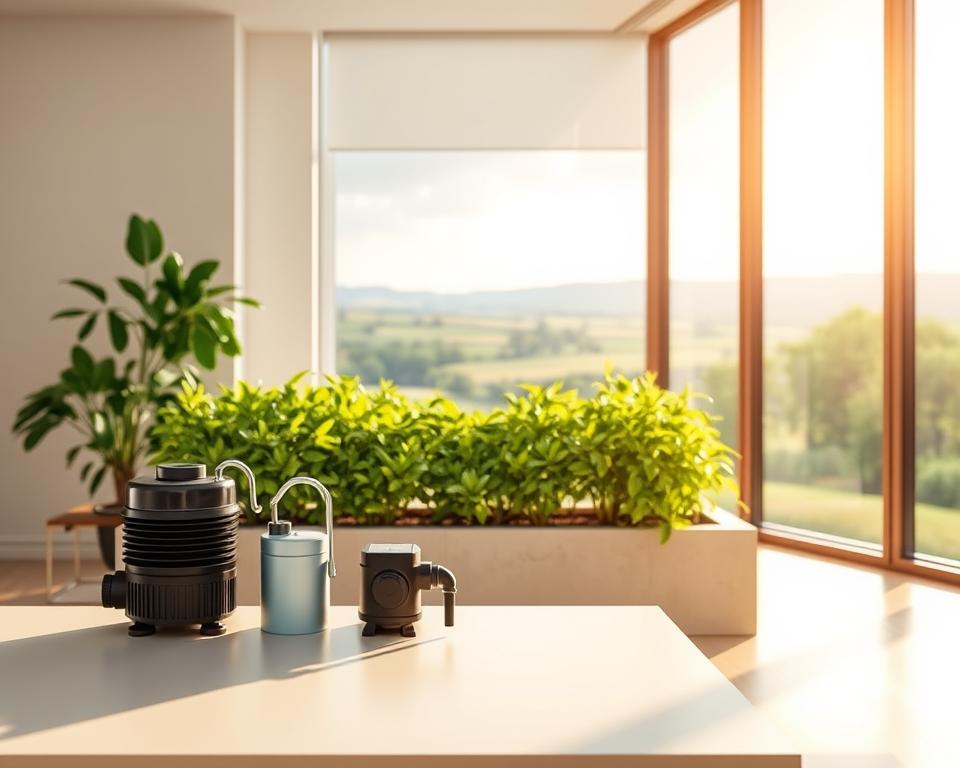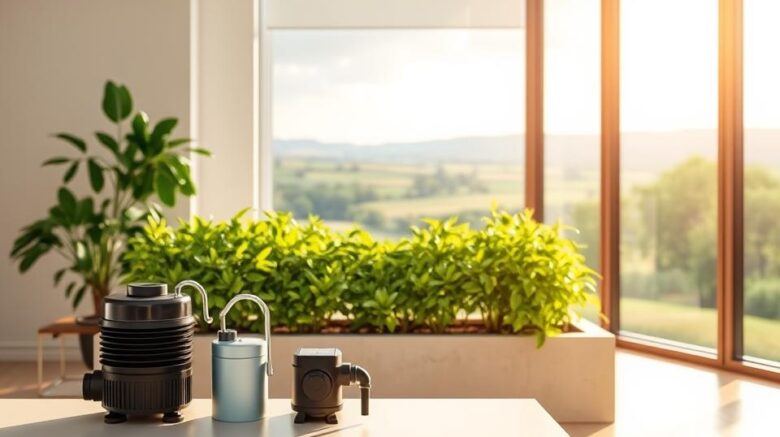RV Waste Pump: Essential Maintenance Advice
Are you sure your motorhome’s black water pump is fit for the journey, or could it produce campsite headaches? Caring for your motorhome’s waste system in prime condition is essential. It wards off unpleasant aromas, obstructions, and pricey harm. We’ll share indispensable advice to ensure your sewage pump runs flawlessly, keeping your travels serene.
Understanding Your RV’s Plumbing System
The RV plumbing system is integral for any successful road trip. It breaks down into two main parts: the black water system and the gray water system – RV septic pumping. The black water system captures waste from the toilet, and the gray water system processes wastewater from sinks and showers.
The systems utilize drain lines that empty into different tanks, designed for streamlined waste management. Each tank has a vent to avert gas from building up, guaranteeing the operation is safe and scent-neutral. Proper waste management in an RV is key to avoid leaks or bad odors. By familiarizing yourself with both black and gray water tanks, RV owners can service and manage waste better.
Understanding how your RV’s plumbing works reveals issues promptly. Routine maintenance ensures smoother travels for everyone. Keeping on top with your RV’s plumbing system assures reliability during your travels.
Water-Holding Tank Types
Operating RVs involves being aware of the different tanks. Each one is crucial to your RV’s operation, demanding regular upkeep.
The fresh water tank stores potable water. It’s critical for a enjoyable RV experience.
The gray water tank receives sink, shower, and other non-Septic wastewater. Handling this tank keeps your RV sanitary while traveling. The black water tank, on the other hand, contains toilet waste. It needs consistent emptying and meticulous maintenance to avoid issues.
By recognizing the fresh, gray, and black water tanks, RV owners can optimally control their systems. This strategizing and continual maintenance guarantee smooth functionality of the waste management system.
How RV Black Water Tanks Work
The operation of the black water tank is essential in RV waste management. It receives waste from the toilet via a gravity-fed system. Upon flushing, waste and water are directed into the tank, to be stored until removal is necessary. It’s critical to keep water levels optimized in the toilet to sidestep solid waste buildup.
Understanding how RV waste tanks function can sidestep clogs and odors. Without proper care, solid waste hardens, creating blockages and emptying difficulties. Thorough tank flushing techniques are vital to preventing these issues, ensuring smooth functionality.
Frequent inspection of tank mechanics is advised for RV owners. This includes observing flushing methods and sustaining adequate water flow. Knowing these essentials supports efficient tank maintenance, heading off expensive fixes later.

Crucial Maintenance Tips for Your RV Black Water Pump
Completing regular maintenance on your RV’s black water pump is critical. Begin with choosing RV-safe toilet paper to cut down clogs and better flow. A complete flush can get rid of waste and diminish bad smells. Routinely cleaning the tank helps halt residue buildup, keeping your RV clean and comfortable.
Carry out frequent inspections to assess your pump’s condition. Look for any signs of wear or damage that could affect its function. Using specialized tank treatments, like those from All in Sanitation, can greatly raise both performance and cleanliness. Applying these tips can increase your pump’s life and better your RV’s living conditions.
Opt for RV-Specific Tissue
Maintaining your RV’s black water system includes vital steps. One essential tip is using RV-safe toilet paper for clog prevention. This purpose-made product breaks down quickly in water, suited for RV sanitation systems.
RV-safe toilet paper is vital for tank maintenance. It dissolves fast, preventing blockages from slow-decomposing materials. This boosts waste disposal efficiency and keeps the plumbing clear.
Opt for brands marked as RV-safe when buying toilet paper. These products minimize clog risks and extend your black water tank‘s lifespan by sidestepping buildup. Continual use guarantees a stress-free camping experience, without plumbing troubles.
Complete Tank Rinsing
Flushing thoroughly your black water tank is vital for proper waste management in your RV. To aid waste movement, make sure the toilet bowl is properly topped up before flushing. Many RVs are equipped with built-in tank flush systems to make the process more efficient. For RVs without this feature, employing tank rinsers that attach to the sewer outlet offers a reliable alternative.
Correct tank flushing facilitates waste removal and avoids solid accumulations and bad smells. Keeping up with this process secures your RV stays free of odors, making your travels more pleasant. A focus on regular and complete tank flushing will boost hygiene and the overall condition of your RV’s plumbing system.
Prevent Build-Up with Regular Cleaning
Holding your RV’s black water tank clear is essential for its peak function. Frequent cleaning washes away lingering waste inside the tank walls. This means washing well with water and using specific RV tank cleaners for tough deposits.
By cleaning diligently, you halt odors and lessen clog risks. A clean tank makes RVing better and helps your plumbing last longer. Incorporate tank maintenance into your routine to deliver smooth travels.
Choosing Proper Chemicals
Selecting suitable chemicals for RV black water pump maintenance is key for managing waste and controlling smells. Many RV enthusiasts rely on enzyme-based RV holding tank treatments. These products contain good bacteria to dissolve solids and cut down bad odors.
Avoiding harsh chemicals is essential to prevent damage to your plumbing. Such substances can eat away at pipes, leading to pricey replacements and diminishing your RV enjoyment. Employing safe chemicals for odor control guarantees your tank and pump’s longevity.
Preserving your RV black water tank in top condition improves your travel experience. Using the right holding tank treatment routinely guarantees your system works well.
Regularly Emptying Your Tank
It’s vital to empty your RV’s black water tank at the right time for smooth emptying. Plan to dump when the tank is about two-thirds full is wise. This avoids solid waste buildup, ensuring a quicker emptying process.
Emptying at official stations is imperative for safe, eco-friendly waste handling. It’s vital to keep an eye on the tank‘s levels closely. Letting it fill completely can result in clogs and make disposal more difficult.
Appropriate scheduling and techniques are essential for hygienic waste management and can extend your plumbing’s life. Maintaining steady oversight and caring for the system well guarantees a pleasant RV living experience.
Inspect and Maintain Seals
Inspecting seals around the toilet and tank is vital for leak prevention. Over time, these seals might deteriorate, leading to odors and potential harm. A comprehensive inspection will reveal any wear or damage. Finding issues early permits quick replacement to secure a secure connection and odor-free RV.
Maintaining a bit of water in the toilet bowl aids in preserving seal condition. This safeguard is vital in RV seal upkeep. It lengthens the seals’ life, halting leaks and foul odors.
Regular seal maintenance can stop pricey work later. By staying mindful of seal health, RV owners secure a pleasant journey.
Extra Strategies for Ongoing Upkeep
Booking professional servicing for your RV at least once a year is sensible, particularly for black water tank care. This strategy supports spotting issues sooner and preserves your plumbing system’s integrity.
When readying your RV for storage, thoroughly clean and empty the black water tank first. Use antifreeze to prevent damage from remaining water during cold seasons. Employing this tactic is important for preserving the system, making sure it’s ready for your next adventure.
Regular inspections and preventive actions are key to prolonging your sanitation system’s life. Paying close attention to connections, hoses, and seals secures smooth operations. This approach improves your RV experience, making it enjoyable all year round.
Guaranteeing your RV’s black water pump is well-maintained is critical for a stress-free camping journey. By sticking to the maintenance tips shared, you can retain your black water system running smoothly. It’s important to focus on consistent tidying, utilizing correct flushing methods, and opting for appropriate chemicals for waste management.
By fulfilling these maintenance requirements, you will sidestep unpleasant odors and blockages. This also prolongs your RV plumbing system’s durability. Proactive care of the RV black water pump leads to more time enjoying the outdoors, absent potential setbacks.
Bear in mind, proper upkeep is key next time you gear up for an outing. It’s not the highlight of RV ownership, yet it significantly betters your travel experience.
